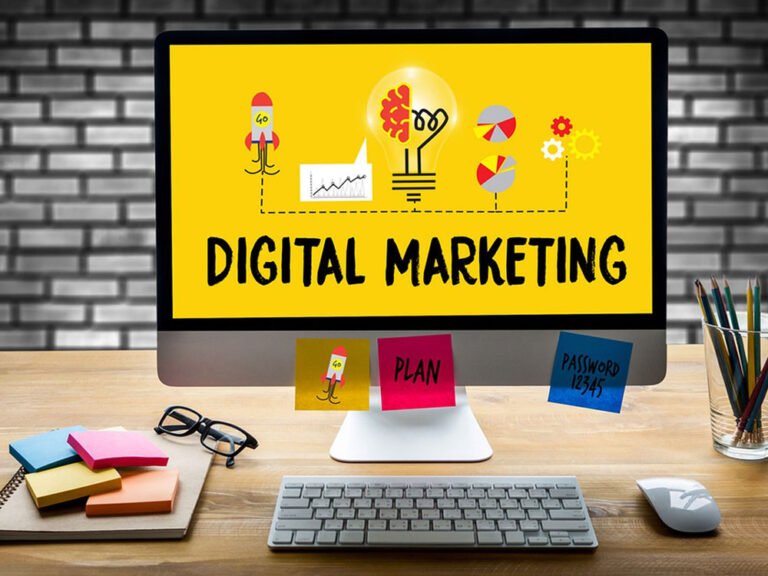As of 2024, the digital marketing landscape continues to evolve rapidly, influenced by technological advancements, changing consumer behaviors, and emerging market trends. In this 2000-word answer, I’ll delve into the top digital marketing trends for 2024, covering various aspects such as AI-driven marketing, immersive experiences, privacy concerns, video marketing, influencer collaboration, and more.
1. Artificial Intelligence (AI) in Marketing
AI has become an indispensable tool for marketers, offering advanced analytics, personalization, and automation capabilities. In 2024, AI-driven marketing strategies will further evolve, leveraging machine learning algorithms to predict consumer behavior, optimize ad campaigns, and deliver highly personalized content. Marketers will increasingly rely on AI-powered tools for sentiment analysis, chatbots, and predictive analytics to enhance customer experiences and drive better campaign performance.
2. Immersive Experiences
With the rise of virtual and augmented reality technologies, immersive experiences will become a key focus for digital marketers in 2024. Brands will explore innovative ways to engage consumers through immersive content, such as VR-powered product demos, AR-powered try-on experiences, and interactive storytelling. These immersive experiences will not only captivate audiences but also provide valuable insights into consumer preferences and behaviors.
3. Privacy-First Marketing
Privacy concerns have been on the rise, driven by regulatory changes such as GDPR and CCPA, as well as growing consumer awareness about data privacy issues. In 2024, marketers will prioritize privacy-first strategies, focusing on transparent data collection practices, opt-in consent mechanisms, and enhanced data security measures. Brands that prioritize consumer privacy and respect data protection regulations will build trust and credibility with their audiences.
4. Video Marketing Dominance
Video content continues to reign supreme in digital marketing, with platforms like YouTube, TikTok, and Instagram driving the demand for engaging video content. In 2024, video marketing will continue to dominate as brands experiment with short-form videos, live streaming, and interactive video ads to capture audience attention. Marketers will invest in high-quality video production and storytelling to create compelling brand narratives and drive engagement across multiple channels.
5. Voice Search Optimization
With the increasing adoption of voice-enabled devices such as smart speakers and virtual assistants, voice search optimization will be a key focus for marketers in 2024. Brands will optimize their content for natural language queries and conversational search patterns to improve visibility in voice search results. Voice commerce will also gain traction, as consumers use voice commands to make purchases and interact with brands seamlessly.
6. Social Commerce
Social media platforms will continue to evolve into powerful e-commerce channels, blurring the lines between social networking and online shopping. In 2024, social commerce will become more prominent, with platforms like Instagram, Facebook, and Pinterest introducing new shopping features and integrations. Marketers will leverage social commerce opportunities to drive product discovery, facilitate seamless transactions, and enhance the overall shopping experience for consumers.
7. Influencer Collaboration
Influencer marketing will remain a cornerstone of digital marketing strategies in 2024, as brands seek to leverage the influence and credibility of social media influencers to reach target audiences. However, the nature of influencer collaboration will evolve, with a focus on authenticity, diversity, and long-term partnerships. Micro-influencers and nano-influencers will gain prominence, as brands prioritize niche audiences and genuine engagement over reach metrics.
8. User-Generated Content (UGC)
User-generated content will continue to play a crucial role in digital marketing, providing authentic social proof and fostering community engagement. In 2024, brands will actively encourage their customers to create and share content, leveraging UGC to showcase product experiences, drive word-of-mouth referrals, and build brand loyalty. Marketers will harness the power of UGC across various channels, including social media, websites, and email campaigns.
9. Personalization at Scale
Personalization will remain a key driver of marketing success in 2024, as consumers expect tailored experiences across all touchpoints. With advancements in data analytics and AI, marketers will be able to deliver hyper-personalized content and recommendations at scale. Dynamic content optimization, predictive modeling, and real-time messaging will enable brands to connect with consumers on an individual level, driving higher conversion rates and customer satisfaction.
10. Sustainability and Corporate Social Responsibility (CSR)
As environmental and social issues take center stage, consumers are increasingly gravitating towards brands that demonstrate a commitment to sustainability and CSR. In 2024, digital marketing efforts will reflect this shift, with brands integrating sustainability messaging and initiatives into their campaigns. From eco-friendly product promotions to cause-related marketing campaigns, brands will align their values with those of socially conscious consumers, driving brand loyalty and positive brand perception.
Conclusion
In conclusion, the digital marketing landscape in 2024 is characterized by rapid innovation, technological advancements, and shifting consumer expectations. Marketers must adapt to these changes by embracing AI-driven strategies, creating immersive experiences, prioritizing privacy, leveraging video content, optimizing for voice search, embracing social commerce, collaborating with influencers, harnessing user-generated content, personalizing experiences at scale, and demonstrating a commitment to sustainability and CSR. By staying ahead of these trends and embracing digital transformation, brands can effectively engage audiences, drive conversions, and build lasting relationships in the digital age.


